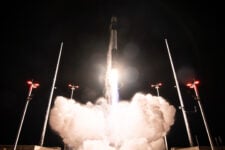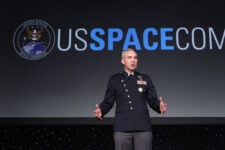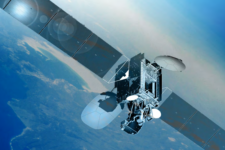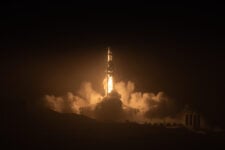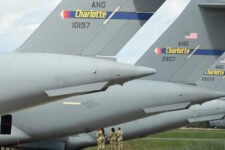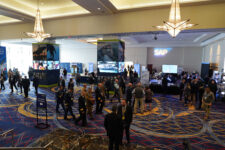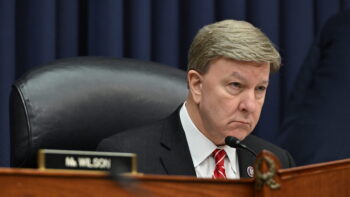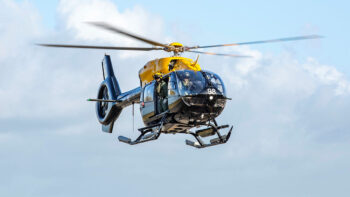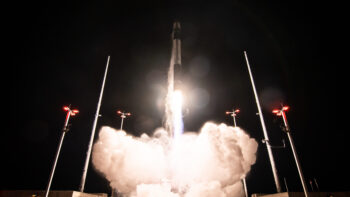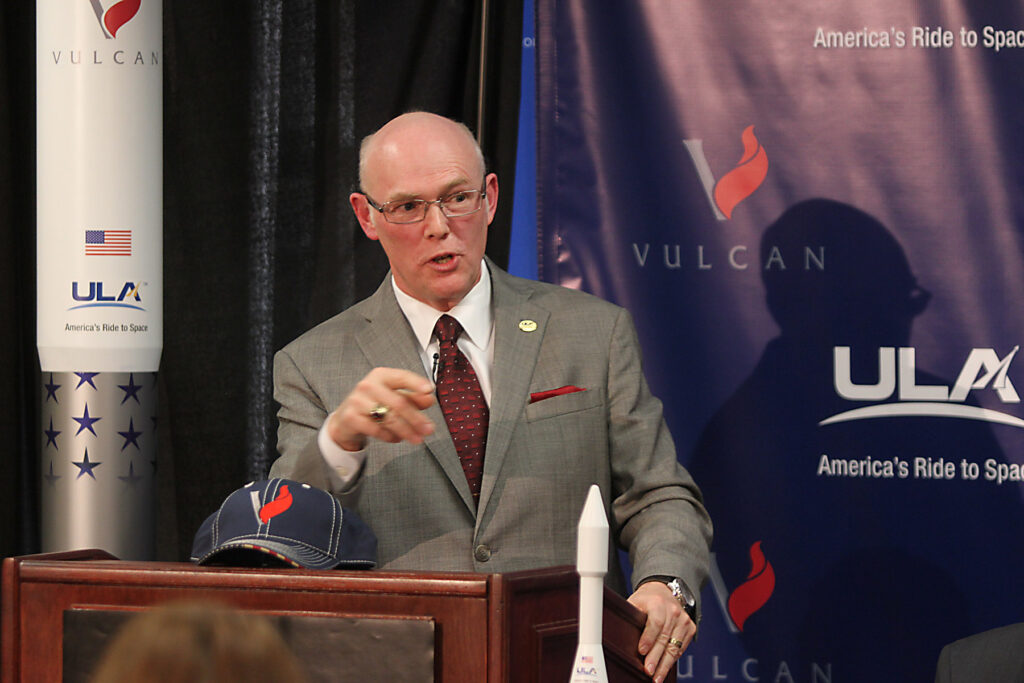
ULA CEO Tory Bruno
WASHINGTON: Hot on the heels of an agreement between the Air Force and the FAA to streamline regulations on space launches from military ranges, the head of one of the biggest US launch providers has called for penalizing companies that violate the safety clauses of FAA launch licenses.
“The regulations that FAA applies, and the licensing procedure that applies to commercial space launch providers, are really all about safety and they have to be taken seriously, Tory Bruno, United Launch Alliance told the Secure World Foundation’s Space Sustainability Summit on Wednesday. “And so if a new provider or a traditional provider violates their license, or does something that is contrary to the safety regulations, there should be a deterrent set of penalties that will cause them to think twice, and not do it.”
Bruno argues that the FAA’s current maximum $100,000 fine is simply too low to do any good.
“The financial penalties are really a little bit out of balance with how expensive it is to actually stand up a launch crew and all of the assets that are involved. So, I would advocate for, you know, a set of penalties that are effectively deterring the behavior of operators who would not otherwise be responsible.”
Bruno’s remarks elaborated on testimony he gave to the House Committee on Transportation & Infrastructure aviation subcommittee last week that oversees the FAA. His repeated references to “new providers” and the potential for regulation flouting also were a clear rebuke to rival SpaceX. SpaceX, as first reported by colleague Joey Roulette, ignored FAA warnings that launching its first Starship prototype last December would violate its license.
ULA and SpaceX are both currently providers of military space launches via the Space and Missile System Center’s National Security Space Launch (NSSL) program, last August having beat out Blue Origin and Northrop Grumman to provide launches through 2027.
SpaceX and partner Exploration Architecture (XArc) this past October signed a a Cooperative Research and Development Agreement (CRADA) with Transportation Command to explore the concept of using Starship to carry cargo (and, in the future, perhaps, troops). The Air Force Research Laboratory (AFRL) now has picked up the ball, announcing a new high-priority Vanguard program, called Rocket Cargo, aimed at speeding the ability of commercial launch companies to provide rapid point-to-point cargo delivery (by carrying a C-17 or its weight in gear) anywhere on the Earth.
On Monday, the Air Force and the FAA announced their new agreement. “The agreement recognizes common safety standards for FAA-licensed launch and reentry activities that occur on, originate from, or return to Cape Canaveral Space Force Station in Florida and Vandenberg Space Force Base in California. It also removes duplicative processes and approvals for the U.S. commercial space sector,” according to a joint press release.
The two sides in essence have agreed to accept each others’ safety standards, but perhaps more interestingly: “In addition, the two agencies will consult before responding to commercial space operator requests for relief from safety requirements and on the development of hazard areas.”
Bruno went on to lash out at satellite operators who fail to take measures to minimize space debris. In particular, he chided China for its failure to abide by international norms regarding the re-entry of used rocket stages. China allowed the large core stage of its Long March 5 to re-enter the atmosphere uncontrolled causing a bit of global panic last month.
“Well, I’m gonna be direct, and I’m going to say that a responsible launch provider does not deliberately perform an uncontrolled re-entry of a stage,” Bruno told Secure World Foundation. I mean there’s just no two ways to talk about this. That particular rocket is designed to perform uncontrolled re-entries, and that stage is very large — that’s essentially a 10- or 12-story tall metallic structure that, as you saw in the news, will make it all the way down to the surface of the Earth.”
He stressed the uncertainty about where the rocket body would fall within its unpredictable flight path, noting that “air traffic was diverted, with people concerned about whether or not it would come down on land and potentially in an inhabited area.
“That was a terribly irresponsible thing to do,” Bruno said. “And so, as we talk about the future of space traffic control, we’re going to need to have international agreements on what the appropriate standards of behavior are and how we will all abide by them.”
HASC chair backs Air Force plan on space Guard units (Exclusive)
House Armed Services Chairman Mike Rogers tells Breaking Defense that Guard advocates should not “waste their time” lobbying against the move.





